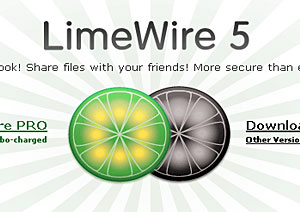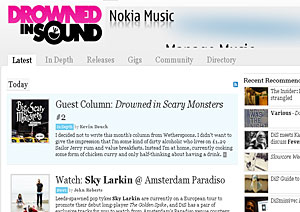 A new UK based survey has found that nearly half of web users have used illegal file sharing sites to help themselves to free content.
A new UK based survey has found that nearly half of web users have used illegal file sharing sites to help themselves to free content.
A study involving over 1,000 consumers by Tiscali.co.uk and music site DrownedinSound (DiS) found that 46% of users had used peer-to-peer sites (P2P), with Limewire (34%) and BitTorrent (25%) being the most popular.
Ten per cent of those who admitted to downloading illegal music in the survey said that they rarely coughed up for music now because they can get it for nowt.
Around 60 per cent of Tiscali and DiS respondents said that budget restrictions forced them to download tunes for nothing, or that the freebies were to supplemental their regular spend on their favourite music/artists.
The study found that over three quarters knew what was legal and illegal in relation to music use, but at least half felt that the music industry hadn’t done enough to persuade them that illegal downloading is damaging and very, very naughty.
Neal McCleave, MD of Media Services at Tiscali, said, “There’s clearly a distinct trend for people topping up their paid music collection through free downloads. Only a hardcore of about 15% said that they wouldn’t stop and they downloaded illegally because they didn’t want to pay.”
 “This means there needs to be a major change in attitude through education to ensure public peer pressure can achieve the sort of shift in behaviour equivalent to that of always wearing a seatbelt or making smoking in the workplace unacceptable,” he continued.
“This means there needs to be a major change in attitude through education to ensure public peer pressure can achieve the sort of shift in behaviour equivalent to that of always wearing a seatbelt or making smoking in the workplace unacceptable,” he continued.
It’s not all bad news for the beleaguered music industry though, with 53% of respondents saying that they had never knowingly downloaded music illegally.
Almost everyone was still paying for some music too, with 83 per cent of respondents saying that they paid for music, with ‘illegal downloading communities’ still shelling out money on CDs (51% for tiscali.co.uk, 54% for iTunes and 69% for DiS).
McCleave commented: “The research shows that music fans have a far from simple relationship with music and many see illegal downloading as either a way to explore new music they would never buy or as a way to try before they buy. This doesn’t have to be all negative news for the music industry: in fact, if people are not able to access tracks for free, it may well prevent them from discovering new music in the future.”
Comments
One response to “Nearly Half Of UK Web Users Have Illegally Downloaded Music”
That McCleave quote is a good’un – I think there probably is a good argument for pirated music expanding people’s knowledge – most music channels and radio stations seem to play the same stuff constantly so if you want to hear something new these days you often need to find it online.
I don’t download anything but I sometimes get given ripped CDs by friends who think I’ll like the band/artist and have access to a wide range of music through the office’s shared iTunes library and I have gone to gigs and bought albums as a result of that, I can imagine the same is true of a lot of people out there downloading stuff out of curiosity. I’m fairly sure there was some study which suggested something similar a while ago but I can’t for the life of me remember when, where or by whom.. I’ll come back if I remember!